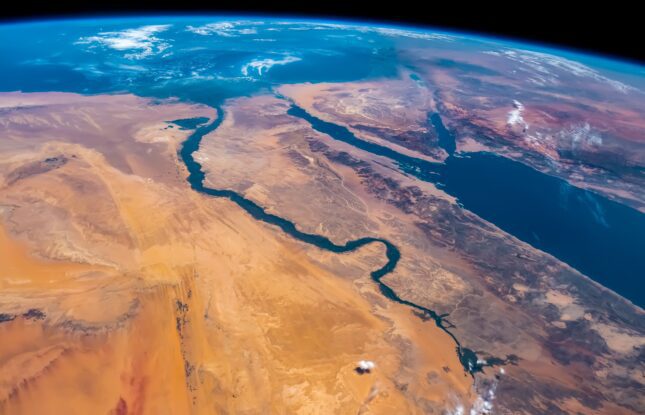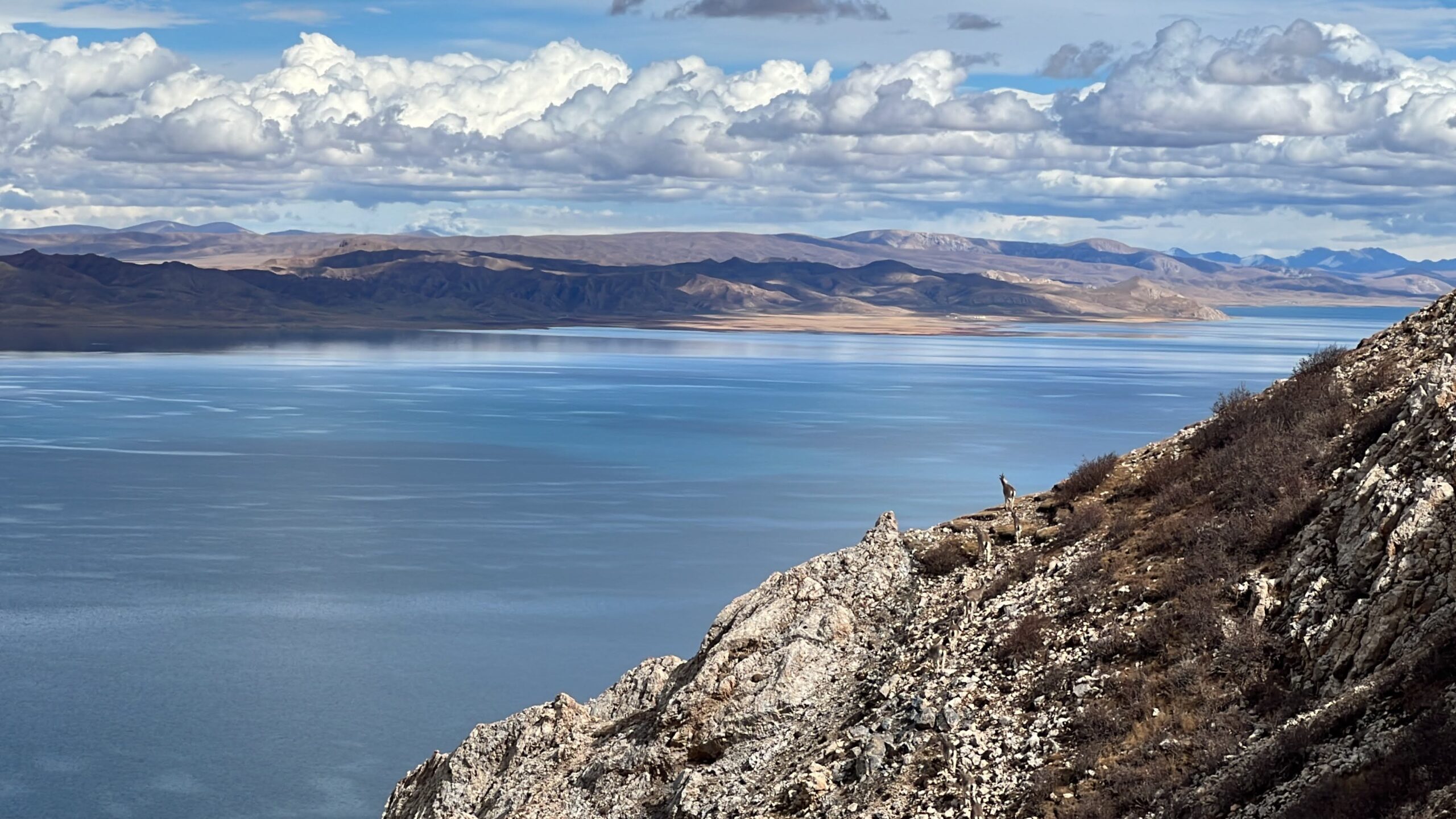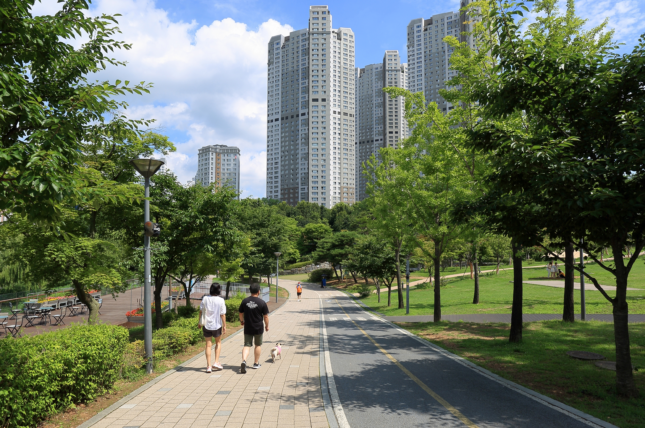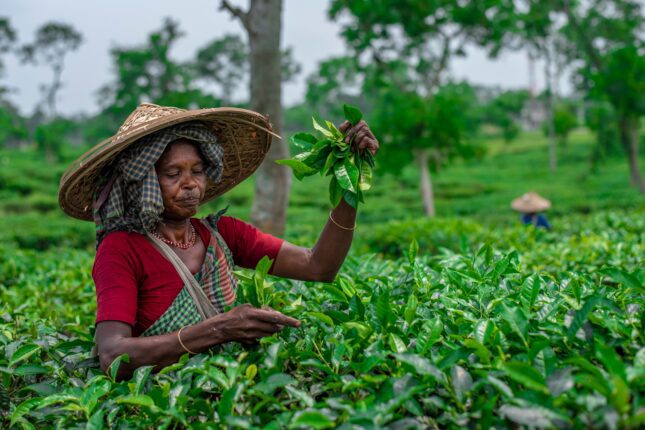-
China’s Offshore Wind Blows Away the Competition, For Now: Q&A with Trivium China’s Cosimo Ries
›China and the Global Energy Transition // China Environment Forum // November 7, 2024 // By Man-Hsuan Lin“The size and power output of China’s new offshore wind turbines are remarkable. We are talking about turbines almost 200 meters tall, with blades spanning the length of a football field. The amount of electricity they can generate is staggering.” enthused Cosimo Ries from Trivium China, who is a clear “fan” of offshore wind. And China’s turbines are getting bigger. The Dongfang Electric Corporation just rolled the world’s largest single-capacity offshore turbine (26MW) off the production line in Fujian Province this October.
-
Finding a Place for “The Planetary?”
›
One of academia’s latest buzz phrases is “the planetary.” While it may seem on the surface to lack a clear connection with climate security, a closer inspection suggests that this term does have significant relevance to discussions about this key concept.
Use of “the planetary” is an attempt to compel people to think much more carefully about the current human condition. The climate crisis—as well as the extinction event we are living through—are challenging contemporary notions that humans are somehow separate from nature. In short, a relatively stable world in which our infrastructure, economies, and modes of thinking remain rooted is no longer a useful construct.
-
The 2024 Emissions Gap Report: A Clarion Call for Mandatory Commitments?
›
A new United Nations report calls upon countries to deliver drastically stronger action on climate change. “Emissions Gap Report 2024: No more hot air…please!” is intended to raise the alarm at a significant moment: less than a month before nations head to Azerbaijan for COP29, and just a few months before the preparation and submission of new nationally determined contributions (NDCs) next February ahead of COP30 in Brazil.
-
ECSP Weekly Watch | October 28 – November 1
›
A window into what we’re reading at the Wilson Center’s Environmental Change and Security Program
COP16 Sees Action Against Biomass Subsidies (Mongabay)
In recent years, biofuel has gained tremendous popularity as an alternative to fossil fuels. Yet scientists have now demonstrated how burning forest biomass to produce energy emits more carbon emissions than coal when measured per unit of electricity generated. They also have evidence that forest-based products like wood pellets degrade carbon stores and biodiversity. It is a debate that has gained momentum in the ongoing COP16.
-
China’s First National Park: Managing Access and Benefits
› Bharal (Himalayan blue sheep) near Donggecuona Lake near Madoi are well camouflaged – look closely to find the nine in the photo.
Bharal (Himalayan blue sheep) near Donggecuona Lake near Madoi are well camouflaged – look closely to find the nine in the photo. As I hiked over the crest of a small hill near Donggecuona Lake in Madoi County, Qinghai Province, I startled a herd of over fifty bharal (Himalayan blue sheep) on the slope ahead of me. Some that were lying down suddenly scrambled to their feet. Others took a brief pause in their grazing to look up at me. I whispered to my guide Sonam Gyurme, “Look!”
-
“Too Many” to “Too Few”: South Korea’s Declining Fertility Rates
›
In South Korea, pet strollers have become more popular than baby strollers. Sales reports from an e-commerce firm in that country noted that sales of infant strollers fell by 43% in 2023, while the sales of pet strollers rose by 57%—and consumer demand for pet products continued to grow into the first months of 2024. There has also been an uptick in the opening of veterinary hospitals that is outpacing the establishment of pediatric clinics in many neighborhoods.
-
New Security Brief | Pioneering Solutions: Climate Finance, Gender Equity, and Sexual and Reproductive Health Services
›
This article is adapted from “Pioneering Solutions: Climate Finance, Gender Equity, and Sexual and Reproductive Health Services”
A warming world is leading to new challenges for communities and countries around the globe. The significant impacts of climate change on global health, and on women and girls, are well-documented. Yet despite the evidence, funding for climate responses that focus on health or gender remains relatively low. In the rare instances where climate finance provides funds to improve health services, sexual and reproductive health (SRH) services—which are critical to women’s full participation in society and decisionmaking—are largely neglected.
-
ECSP Weekly Watch | October 21 – 25
›
A window into what we’re reading at the Wilson Center’s Environmental Change and Security Program
COP16 Begins in Colombia (Al Jazeera)
Almost 200 countries are gathering in Colombia for a two-week span (October 21 to November 1) for the UN Convention on Biodiversity to further global conservation goals. At COP15, the meeting culminated with an ambitious global treaty—the Kunming-Montreal Global Biodiversity Framework (2022)—that required member states to halt and reverse biodiversity loss. The agreement had four goals that set a “30×30“ agenda to protect 30% of global land, earth, and water ecosystems by 2030.
Showing posts from category *Blog Columns.











